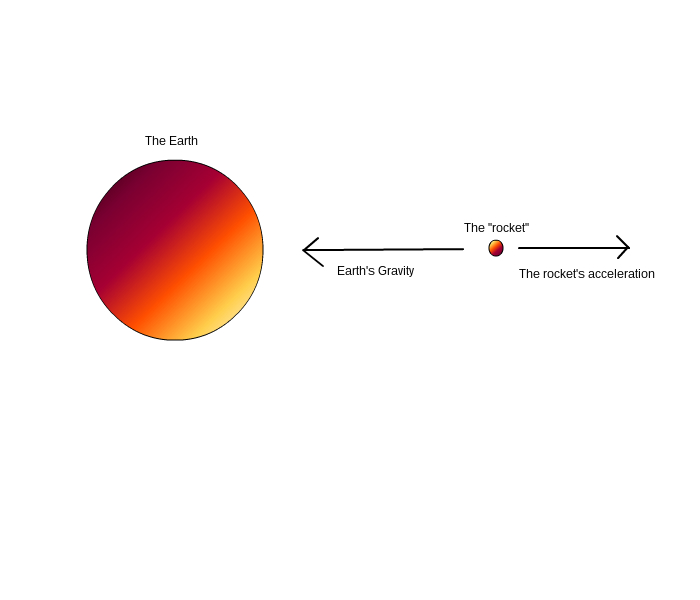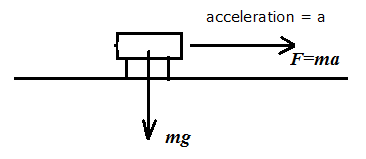Let's discuss a whole set of cases.
You're standing on the planet. I'm guessing that you would describe the sensation as 'feeling' gravity pulling you down.
You're on a skydiving trip, standing in the plane. You still 'feel' gravity.
You're on the skydiving trip and you've just step out of the plane, but not had time to pick up speed. Here you don't 'feel' any gravity.
Later on, you deploy you chute and come to a rather modest terminal velocity. Now you 'feel' gravity again.
You've trained very hard, been selected as an astronaut and you've hanging out in the International Space Station. No 'feeling' of gravity.
Get in your Mars bound ship and turn on the rockets. 'Feel' gravity.
Still in that Mars bound ship, you've completed transfer orbit insertion and the rockets have turned off. No 'feeling' of gravity.
Arrived at Mars' orbit, with the planet coming up fast from behind. The rockets come back on to achieve match with the planet. The rockets come on and the 'feeling' of gravity returns.
So which three cases have no 'feeling' of gravity? Just stepped out of a plane, in free orbit around the Earth and in free orbit between the planets.
Two things that can't explain the full set of cases.
It's not whether or not you are subject to a gravitational force from the planet. That happens in both the sky diving and ISS cases.
It can't be an acceleration relative the planet. You have that when stepping out of the plane and in the ISS (no 'feeling'), but also in the rocket on transfer insertion and matching with the destination ('feeling')
But what all the case where you 'feel' gravity have in common is that a material substance is pushing on you. On earth it is the ground (or floor). In the plane it is the floor of the plane. In the accelerating rocket it is the deck or more likely your crash couch. In the chute it is the harness.
And the cases when you don't 'feel' acceleration is when you are in free fall.
So the thing that causes the 'feeling' of gravity is the normal force between you and a material object.


